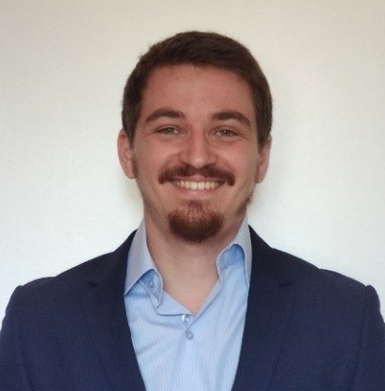Biomaterial approaches for improved bone regeneration - Bacterial exopolysaccharides, immunomodulation and coaxial printing
Romain Bagnol is a PhD student in the department Advanced Organ bioengineering and Therapeutics. (Co)Promotors are prof.dr.ir. D.O.J. Eglin and prof.dr. D.W. Grijpma from the faculty of Science & Technology and dr. F. Moriaty from AO Research.
 Bone fractures are common injuries with good healing outcomes in the general population, however appropriate and timely bone healing is still problematic for certain categories of patients, including patients suffering from critical size defects or chronic inflammatory conditions such as diabetes or osteoporosis. Autografts can be used to enhance bone regeneration, however their limitations including limited material availability and donor site morbidity prompt the development and application of biomaterials to replace them. Nevertheless, biomaterial’s impact on bone healing outcome is complex and depends on critical interdependent parameters including their osteoconductivity, osteogenicity, immune response and structural features.
Bone fractures are common injuries with good healing outcomes in the general population, however appropriate and timely bone healing is still problematic for certain categories of patients, including patients suffering from critical size defects or chronic inflammatory conditions such as diabetes or osteoporosis. Autografts can be used to enhance bone regeneration, however their limitations including limited material availability and donor site morbidity prompt the development and application of biomaterials to replace them. Nevertheless, biomaterial’s impact on bone healing outcome is complex and depends on critical interdependent parameters including their osteoconductivity, osteogenicity, immune response and structural features.
The objective of the research presented in this dissertation was to develop new biomaterials to improve bone regeneration with a focus on the immune response they elicit and their structural properties, both of which are critical for optimal healing. The immune response to the biomaterial directly impacts cellular activity and phenotypes, which can ultimately influence tissue formation both directly and indirectly by modulating bone cells activity. Structural properties play an important role when moving from in vitro settings towards clinical settings with large defects, in which 3D structure, porosity, mechanics and biodegradability impact the quality of healing.
This thesis largely revolved around using bacterial exopolysaccharides to modulate biological response to biomaterials, more specifically EPS624 from Bifidobacterium Longum due to its immunomodulatory properties and inhibitory effect on osteoclasts differentiation. First a literature review on the production and use of bacterial exopolysaccharides for bone regeneration purposes is presented. Secondly, multilayer polyelectrolyte coatings incorporating the EPS624 were developed, and their cytocompatibility, physico-chemical and immunomodulatory properties characterized. Then, calcium phosphates/EPS624 scaffolds were developed, and their physico-chemical, immunomodulatory and osteogenic properties characterized. The implications of the observed results for the use of EPS624 for immunomodulatory applications for bone healing are then discussed. Lastly, the relevance of using coaxial 3D-printing as a manufacturing technique to improve the structural properties of a calcium phosphate cement with a clinically relevant composition was shown. The significance of these results, reflections on the limitations of this work and possible future steps to improve upon are then presented, and the future of biomaterial research for bone regeneration is discussed.

